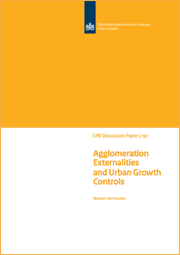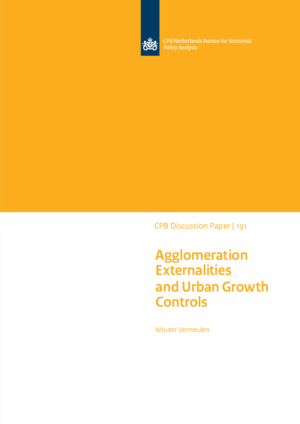October 5, 2011
Agglomeration Externalities and Urban Growth Controls
Should constraints on urban expansion be relaxed because of external agglomeration economies? In a system of heterogeneous cities, we demonstrate that second-best land use policy consists of a tax on city creation and a subsidy (tax) on urban development in cities in which the marginal-average productivity gap is above (below) average.

However, the implementation of this policy requires coordination at the system level. A tax on city creation does not raise welfare if development taxes are set decentrally by competitive urban developers, nor does correction of these taxes raise welfare if a tax on city creation is unavailable. In the resulting constrained optimal allocation, urban development is subsidized in all cities. The quantitative significance of these findings is explored in an application of our model.
Downloads
Authors
Wouter Vermeulen
